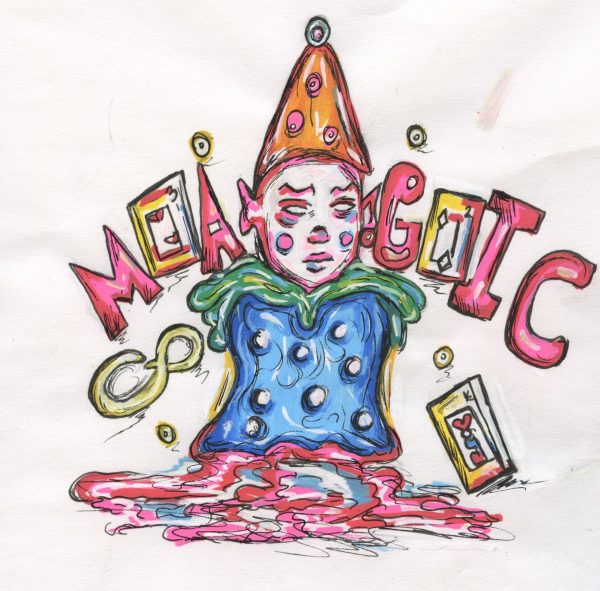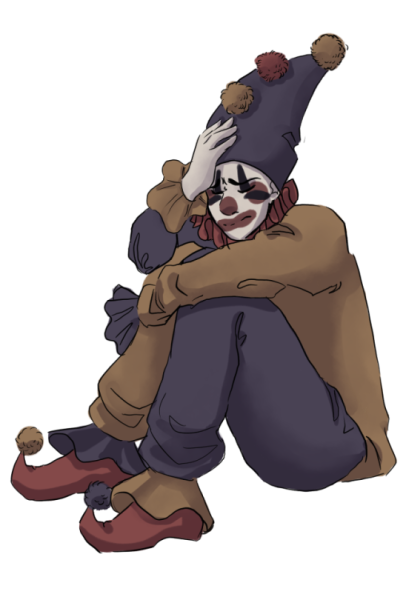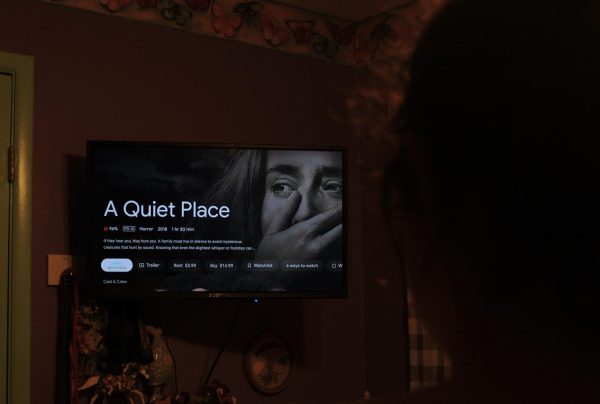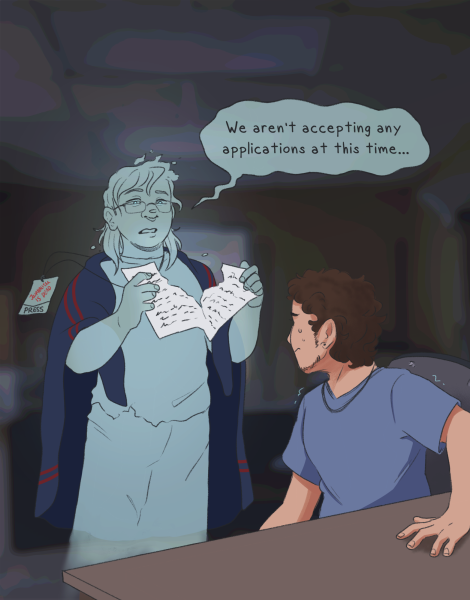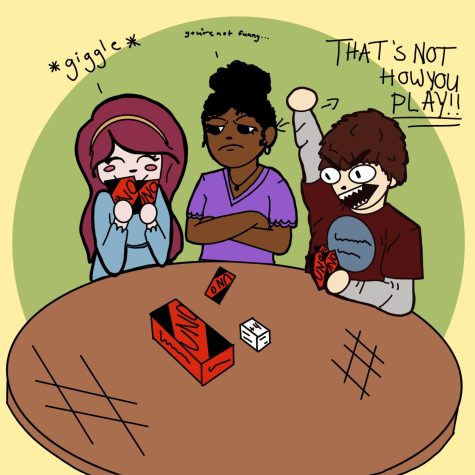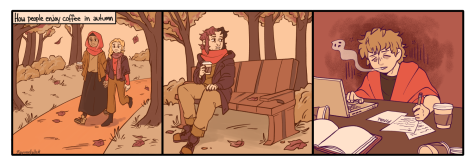Staff Spotlight
“An Evening Soiree at Eallestich Hill,” a short story by Jessica DeMarco-Jacobson
It had been long since he, Mr. Ashfield Lorridge, had held an evening soiree at the Lorridge mansion, though it once was a tradition: ——something as certain as the setting of the Sun and the rising of the Moon.
That evening was quite cool, and the wind tumbled past the guests chatting outside the mansion, allowing the autumn leaves to make their passage from one tuft of grass to the next.
A thin lady then arrived; she was so-very-thin-and-tired. Whether it was from a life thereof or from her long journey was unknown, but her face portrayed a state of calm once she had stepped off of the carriage. If the other guests had taken a pause in their conversation—as is often necessary at such gatherings of the genteel sort, they might have seen the lady’s state of calm, or even perhaps the slight smile that appeared for just a moment when she had stepped off the carriage. They would have seen that pleasant, momentary smile if only they had done what is sometimes necessary.
And if it were not for the opening of the mansion doors, perhaps the guests would have been more likely to humour themselves with one of those often necessary pauses, and they would have been more likely to discover that pleasant, momentary smile that the so-very-thin-and-tired lady portrayed on her now-calm face.
But Mr. Lorridge did open the mansion doors, and the conversations amongst his guests ceased, for those sorts of conversations of the genteel sort were less exciting than what his handsome, dark face seemed to offer them: the often-necessary pause that they had all been wishing for. Although their engaged passions and mannerisms would have done little to express as much to anybody who had attended the evening soiree at Eallestich Hill that evening.
“Well, well,” said Mr. Lorridge in a soothing tone, smiling at all of his guests. “A soiree does not take place outside, does it? The evening is much too cool for an outdoor soiree. Allow yourselves to enter inside now.” He gave another little smile to the guests who had now begun to walk past the doors of the estate at Eallestich Hill.
The so-very-thin-and-tired lady waited for the crowd of guests to enter the doors of the great estate. The wait was long, and the lady became distracted: —she suddenly noticed the bed of little flowers that adorned the great estate at Eallestich Hill.
The bed of little flowers brought excitement to the tired lady, for they were her favourites. When she had once lived at a great estate like the one at Eallestich Hill, she had often desired to grow a garden as delightful as the one before her at this moment. She gave a smile to the little flowers and remembered the estate where she once lived so very long ago when she wasn’t as thin or tired.
By then, all of the guests had passed through the doors of the great estate at Eallestich Hill. The lady stopped looking at the bed of flowers and joined the crowd in gawking at the grand foyer of the great estate.
The highly-vaulted ceiling caused her neck to cramp, and she couldn’t help but remember her past when she had lived with a handsome, dark, and smiling man like Mr. Ashfield Lorridge, whom she had loved quite dearly.
She and the guests entered a large ballroom adorned with a wide red Ottoman rug that seemed to stretch on and on for lengths and lengths. Everyone seemed to immediately gather into little clusters where they spoke of things only, they could hear, but everyone knew anyway: of how good the deviled eggs were or how splendid the band played their music. They smiled at the footmen and smiled at each other saying how gay they were to be in attendance at the evening soiree Eallestich Hill.
The lady did now find herself in a cluster. They had gathered too quickly for her, and she did not know how they were formed. She looked around the ballroom. She thought about how lovely the Ottoman rug was and arched her neck to look at every corner. She gazed at the long, thin windows and loved how the evening light passed through them as easily as one’s first waltz. She reached her hand out to touch it and wondered what time it was. Surely, it must be getting quite late, she ought to begin her ride back home? But then, out of the corner of her eye, she saw Mr. Lorridge walking to one of the footmen. He whispered something in the man’s ear but seemed to be looking directly at the lady while he was speaking.
“Oh, surely he cannot be talking about me!” she thought to herself, putting her hand to her mouth and blushing. And she remembered a time when men did speak of her to other men, how they once stared at her, how they used to ask her father’s permission for a dance.
But only to her dismay, Mr. Lorridge continued his conversation with his other guests. He talked about the new reupholstering on the chairs in the Oriental Room on the eastern side of the estate, and he talked about how he was considering replanting the orchids in the gardens because the cold weather of late was no friend to them.
The lady walked about the ballroom, wondering what she ought to do if no one desired her company. Perhaps it was best to return home. She ought to call for her carriage. She looked about for an open telephone. Usually, these sorts of estates have a telephone tucked away somewhere—or by the least, a telegraph. She looked about for a free footman, who wasn’t busy holding a silver tray of iced drinks, which were of the fashion at the time, or those dainty little sandwiches with the crusts taken off of them.
She looked about and ‘bout, but each footman seemed to her rather occupied with some task or other, scurrying back to the downstairs kitchen to refill their trays of iced drinks of crustless sandwiches.
“What folly this is! I shall be in this ballroom—with its Ottoman rug and all—forever, it seems! Oh, blast it! What use was it; to come to this evening soiree, as they call it?” The lady wondered; she was quite visibly upset, if they were more likely to humour themselves with one of those often necessary pauses, and they would have been more likely to discover that the so-very-thin-and-tired lady was visibly upset.
“I shall find a telephone or telegram soon enough! Mr. Lorridge shall have one in some corner or other!” The lady thought to herself.
Finally, one of the footmen seemed to be unoccupied, and the so-very-thin-and-tired lady walked up to him and requested to use a telegram or telephone. The footman turned to her, looking blankly. Then, he turned to another footman that was holding a tray of those iced drinks and crustless sandwiches.
“Did you hear something, Newmont?”
“We are at a soiree, Griggs. You’re bound to hear something or other.”
“I do suppose you’re right.”
The so-very-thin-and-tired lady grew frustrated. “What pomp! What tact! What vanity!” she said to herself. “And here I thought Mr. Lorridge had a kind and welcoming household! His smiling, lying face! I cannot bear to stay at this evening soiree any longer. For I once wanted to grow little flower beds as delightful as the one before me at the garden. For I once loved a man much like Mr. Lorridge, and I once lived in an estate as great as this one.”
She quickly turned away from the two footmen.
“Newmont, are you quite sure you didn’t hear something? The voice of a woman.”
“Griggs, there are plenty of women here! Now, do your duty, and serve the iced drinks and sandwiches.”
“Very good, sir.”
The lady briskly walked outside; no one noticed, for they were all engaged in their conversations—as is often necessary at such gatherings of the genteel sort. Her carriage just so happened to be waiting for her.
“Oh, Lottwood! Thank heavens you are here. Take me away, take me back, I mean! It is no use. No one remembers how I once lived, nor how I once loved as they did!”
Mr. Lottwood, wearing the clothes of the last decade—for he was the old-fashioned type, tipped his black velvet top hat and started at the reins.
“Apologies, my lady. One day, they will remember. Perhaps next year. I’m as certain as the setting of the Sun and the rising of the Moon they will remember… But for now, it would be my pleasure to take you back.”
“Thank you, Lottwood.”
The horses began to trot away, and soon the evening soiree at Eallestich Hill eventually became a distant memory for all those who attended it.
As for Mrs. Lorridge, she attended the soiree each year in hopes that someone would remember her past and in hopes she would remember her own.

Jessica is an English Literature graduate who minored in History. Jessica started working as a reporter for The Saber/The Uproar during her first semester...




